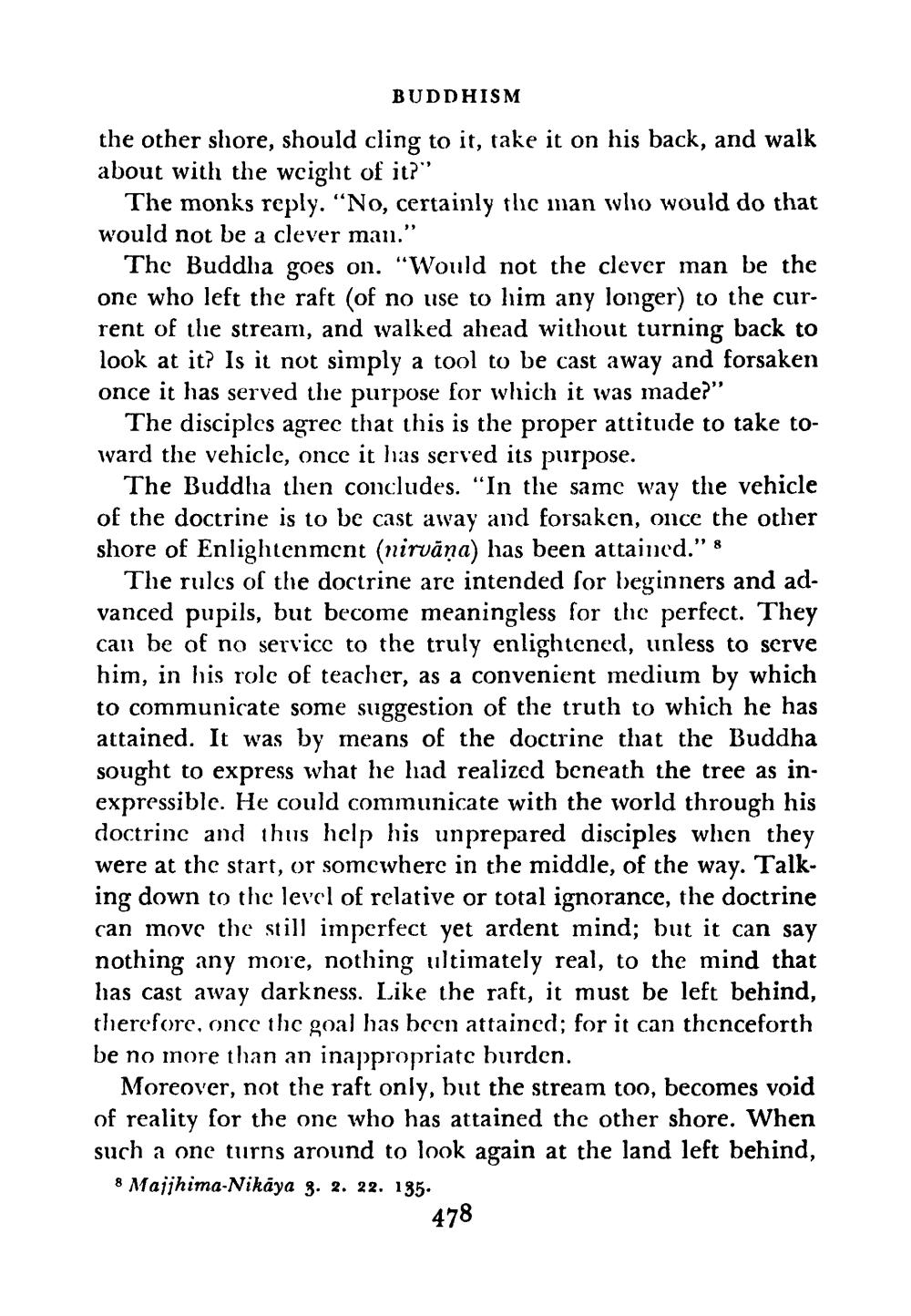________________
BUDDHISM
the other shore, should cling to it, take it on his back, and walk about with the wcight of it?"
The monks reply. “No, certainly the man who would do that would not be a clever man."
The Buddha goes on. "Would not the clever man be the one who left the raft (of no use to him any longer) to the current of the stream, and walked ahead without turning back to look at it? Is it not simply a tool to be cast away and forsaken once it has served the purpose for which it was made?"
The disciples agrec that this is the proper attitude to take toward the vehicle, once it has served its purpose.
The Buddha then concludes. "In the same way the vehicle of the doctrine is to be cast away and forsaken, once the other shore of Enlightenment (nirvāņa) has been attained.” :
The rules of the doctrine are intended for beginners and advanced pupils, but become meaningless for the perfect. They can be of no service to the truly enlightened, unless to serve him, in his role of teacher, as a convenient medium by which to communicate some suggestion of the truth to which he has attained. It was by means of the doctrine that the Buddha sought to express what he had realized beneath the tree as inexpressible. He could communicate with the world through his doctrine and thus help his unprepared disciples when they were at the start, or somewhere in the middle, of the way. Talking down to the level of relative or total ignorance, the doctrine can move the still imperfect yet ardent mind; but it can say nothing any more, nothing ultimately real, to the mind that has cast away darkness. Like the raft, it must be left behind, therefore, once the goal has been attained; for it can thenceforth be no more than an inappropriatc burden.
Moreover, not the raft only, but the stream too, becomes void of reality for the one who has attained the other shore. When such a one turns around to look again at the land left behind, 8 Majjhima-Nikaya 3. 2. 22. 185.
478




